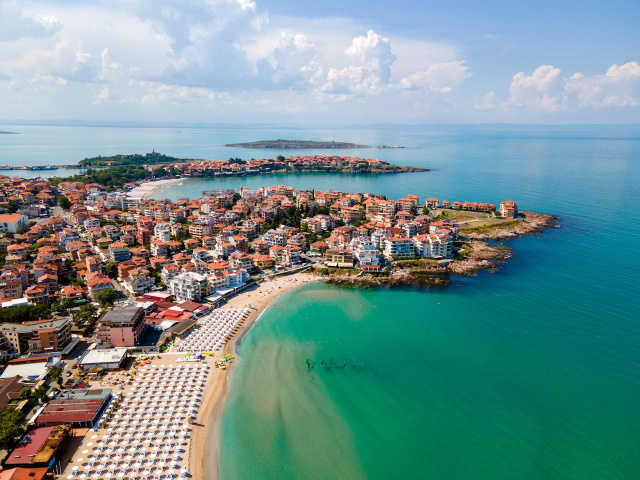
Bulgaria's Tourism Recovery Hindered by Personnel Shortages
26.04.2025
Tourism in Bulgaria has made significant strides toward recovery in 2024, though it still hasn't returned to pre-pandemic levels of 2019, according to Atanas Dimitrov, Deputy Chairman of the Bulgarian Hotel and Restaurant Association, speaking to NOVA News.
Tourism in Bulgaria has made significant strides toward recovery in 2024, though it still hasn't returned to pre-pandemic levels of 2019, according to Atanas Dimitrov, Deputy Chairman of the Bulgarian Hotel and Restaurant Association, speaking to NOVA News. He attributed challenges faced by the industry to factors like climate change and a lack of an effective marketing campaign by the government. Dimitrov highlighted that while the hospitality sector does not suffer from low wages, the real issue lies in the significant outflow of workers, especially due to the COVID-19 pandemic, which caused 20-25% of the workforce to leave permanently.
To address the labor shortage, the sector has resorted to temporary solutions, such as recruiting workers from third countries. Furthermore, Dimitrov mentioned a focus on reviving interest in educational institutions that train personnel for the industry, as enrollment in such programs has declined. Despite these challenges, he expressed hope for a rise in tourist arrivals during the upcoming season.
Salaries and Demand for Seasonal Workers
Seasonal workers along Bulgaria's Black Sea coast can expect salaries around 2,000 BGN net, with many employers offering accommodation and meals as part of the compensation package, according to recent job listings. For example, waiters can earn 2,000 leva, employees preparing fresh juices and sandwiches may make up to 2,350 leva, and office workers in tourist agencies receive around 2,100 leva. For positions like cashiers or croupiers, salaries are between 1,700 to 2,000 leva. This reflects the ongoing recruitment efforts by hoteliers, restaurateurs, and merchants gearing up for the summer season, with many expecting new hires to arrive early for training.
Labor Market Trends for 2025
Looking ahead to the 2025 season, the demand for seasonal workers remains high, with the most sought-after positions being maids (76%), cooks (68%), and receptionists (57%). Waiters (50%), bartenders (26%), and technical staff (23%) are also in demand, while managerial roles are less common, with only 10% of hotels seeking such employees. According to a study by the Bulgarian Association of Hotel Management Professionals (BAHE), over half of employers require only secondary education to begin working, with just over 20% seeking candidates with vocational training. Some employers, however, place a premium on workers with professional experience due to the limited training time available during the short tourism season.
Training and Staffing Challenges
For the most part, hotels along the Black Sea coast are focusing on hiring Bulgarian workers, though about a third employ a mix of Bulgarian and foreign staff. There are fewer instances of hotels relying predominantly on foreign workers, but for those that do, the bureaucratic process for importing labor is time-consuming. The majority of hotels, over 60%, spend around a month training new employees, while some manage to shorten this period to a week (17%) or extend it to three months (15%).
